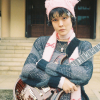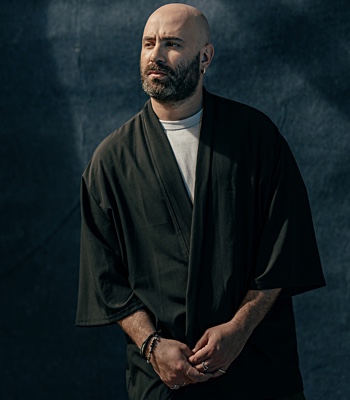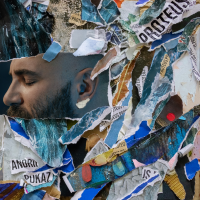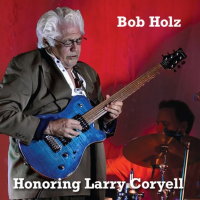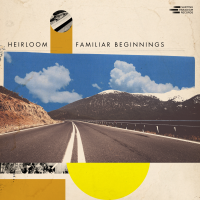“No second-guessing, no overthinking. The way I want to live my life is by doing the things that are important to me, and I think everyone should live that way,” says Mei Semones of her strengthened self-assurance. Through continuously honing in on her signature fusion of indie rock, bossa nova, jazz and chamber pop in a way that highlights her technical prowess on guitar, the 24-year-old Brooklyn-based songwriter and guitarist is quickly establishing herself as an innovative musical force. Since the release of her acclaimed 2024 Kabutomushi EP, a series of lushly orchestrated reflections on love in its many stages, Mei has gone on to tour extensively across the US, cultivate a dedicated following, and write and record her highly anticipated debut album, Animaru...
read more
“No second-guessing, no overthinking. The way I want to live my life is by doing the things that are important to me, and I think everyone should live that way,” says Mei Semones of her strengthened self-assurance. Through continuously honing in on her signature fusion of indie rock, bossa nova, jazz and chamber pop in a way that highlights her technical prowess on guitar, the 24-year-old Brooklyn-based songwriter and guitarist is quickly establishing herself as an innovative musical force. Since the release of her acclaimed 2024 Kabutomushi EP, a series of lushly orchestrated reflections on love in its many stages, Mei has gone on to tour extensively across the US, cultivate a dedicated following, and write and record her highly anticipated debut album, Animaru. Inspired by the Japanese pronunciation of the word “animal” in Japanese, Animaru is the embodiment of Mei’s deeper trust in her instincts – a collection of musically impressive tracks that see Mei sounding more adventurous, more vulnerable and more confident than ever before. Mei’s newfound assertiveness comes in part from her experiences in the past year, as 2024 was a transformative year for the Mei Semones band. They shared bills with the likes of Liana Flores, Elephant Gym and Kara Jackson, among others, and Mei transitioned to doing music full-time. Amidst the frequent touring, Mei and her five-piece band recorded the album in the summer of 2024 at Ashlawn Recording Company, a farm studio in Connecticut operated by their friend Charles Dahlke. To these sessions, she brought a batch of tracks that, not unlike Kabutomushi, are sophisticated declarations of non-romantic love: love of life (“Dumb Feeling”), love of family (“Zarigani”), love of music and her guitar (“Tora Moyo”). Animaru exemplifies Mei’s enchantingly wide range as a songwriter and musician, including some of the most challenging and most straightforward songs Mei has ever written. Though her music might inherently evoke feelings of romance and softness, the crux of the album lies in Mei and her band’s skillful balance of tension and release. Often within individual tracks, there will be moments of pared-back acoustic guitar adorned by Mei’s infectious vocalizations that, in a moment’s notice, transform into orchestral swells of sweeping strings and complex guitar rhythms. Album opener “Dumb Feeling” is a prime example, a bossa/samba blend complete with indie rock sensibilities in the choruses as Mei details her contentment with her life in New York City. Mei actively seeks out musical challenges throughout Animaru, like on “I can do what I want,” the album’s most technically ambitious track. But she still manages to make the quickly cascading guitar harmonics and odd meters sound like a breeze to play, her breathy, lilting voice cutting through the track’s energetic dynamics. It epitomizes the album as a whole – she sings of doing things her own way, on her own terms, in hopes of inspiring others to make the same active switch in their own lives. The simpler moments on Animaru are equally as captivating as when Mei is shredding on guitar or her bandmates are carrying out an intricate arrangement. “Donguri,” a stripped-down jazz duo performance between acoustic guitar and upright bass, is the simplest song Mei has ever written, brought to life by Mei sweetly chronicling (mostly in Japanese) what she imagines life would be like as a woodland creature living in the forest. The album’s penultimate track also encompasses themes relating to the titular “animaru.” Translating to “crayfish,” the bright, effervescent “Zarigani” is a nostalgic expression of love for her twin sister, with Mei singing “We’ll always have each other / I love you like my guitar / I love you like no other.” Family is one of the primary loves of Mei’s life, with her mom, Seiko Semones, making all of her album and single artwork. Despite Animaru being a statement of Mei’s autonomy and confidence at this point in her life, it's the various loves that she surrounds herself with – her family, her friends, her band, her music – that empower her to do things her own way. Animaru, the debut album by Mei Semones, is out on May 2, 2025, on Bayonet Records.
show less

